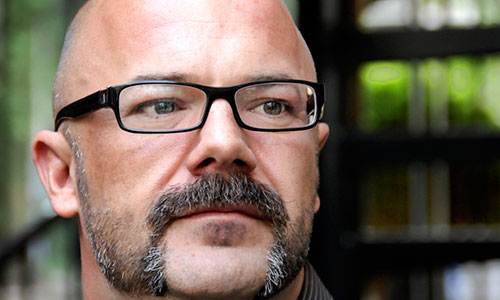Today in Tedium: Everyone is addicted to something. There are certain addictions that we carry around with us that eventually need to be put to bed. Andrew Sullivan, one of the greatest (and most controversial) pundits of the early 21st century, was addicted to blogging. Sully, who’s was one of the most popular online writers of his era and the first big-name writer to devote his life to the practice, announced that he was quitting his longtime platform, The Dish, on Wednesday. Sullivan was clearly tortured by the decision. “How do I say goodbye? How do I walk away from the best daily, hourly, readership a writer could ever have? It’s tough. In fact, it’s brutal. But I know you will understand,” he wrote. Today’s Tedium, in his honor, is on the psychology of quitting. We recommend you don’t quit reading this until the end. — Ernie @ Tedium

It’s not giving up, it’s disengagement
The thing about Sully, or any high-profile quitter before him, is that, ultimately, you reach a limit of what you can do—or more importantly, desire to do—in a given medium, and you have to get some distance from it and go in a different direction.
And it’s worth the common reminder—success doesn’t necessarily equal happiness. Sometimes, you make that realization halfway down the road and find yourself begging for a new direction, like Michael Jordan did when he decided to become a baseball player. Maybe you’re getting older and you’re comfortable enough with where you are that you don’t need to keep topping yourself anymore—maybe you’re in the Billy Joel mode, ready to drop the pop-rock stuff and create classical music instead. And maybe you’ve said all you want to say in a given way—perhaps, like The Postal Service, you were ready to Give Up after a single album.
Even with money playing a factor, there’s a limit with what we’re willing to do if we’re just not interested anymore, or the weight becomes too much for us to bear.
There’s actually a good name for this in the realm of psychology. It’s called “goal disengagement,” and it’s actually a good thing when you get older. A 2011 study on the topic from Concordia University psychology professors Erin Dunne and Carsten Wrosch, as well as the University of British Columbia’s Gregory Miller, found that a willingness to give up goals that were no longer attainable actually helped decrease depression in the elderly.
“Goal disengagement can prevent repeated failure and associated negative emotions, and has been associated with lower cortisol levels, less systemic inflammation, and fewer reports of health problems,” Wrosch told The Atlantic in 2011.
But something has to replace the thing you’re quitting.
“However, people also need to find new purposeful activities,” Wrosch continues. “They have to reengage—find a different job or look for a different partner. Reengagement in turn has been show to predict higher levels of positive emotions and purpose in life.”
Sully says he plans to get back into non-blog writing, and it’ll probably be a good thing for him.
11.3
The average number of jobs people born between the years of 1957 and 1965 had between 1978 and 2010, according to the Bureau of Labor Statistics. That’s roughly a 32-year period. Think that’s a lot? Well, between 1998 and 2011, millennials worked an average of 6.2 jobs—meaning they’re on a pace to quit more often than their parents did.
Five people who quit their “dream job”
- “I felt more like I was a teenager working at a crappy retail job than a professional working at one of the greatest tech companies in the world.“ — Former Apple employee Jordan Price, who quit the gig after less than a month on the job.
- “I left on a whim, the same day that I announced my decision. I had been unhappy long enough to know that quitting was the right thing to do.“ — Onetime model agent Marie Darsigny, discussing why she quit her “pointless” dream job.
- “It became clear to me that from my background, I brought to the bureau certain assumptions that were not universally shared.“ — Longtime credit union executive Cliff Rosenthal, who spent a year with the Consumer Financial Protection Bureau before retiring.
- “Both my family and my marriage started to fall apart. My comedy writer skillset—being a quick-witted wisenheimer who could debate endlessly—didn’t transfer well to a home setting.“ — Television writer David Raether, who worked on numerous episodes of Roseanne and later became homeless, on his reason for quitting the TV industry.
- “I will say, though, that you know it’s time to go, when you have too much self-respect to stay. And when you’re so stressed out that you start losing your hair. Yes, that actually happened to me.“ — Tess Vigeland, the former host of the radio program Marketplace, on deciding to leave. She didn’t have a Plan B, and she wrote a book about it.

Let’s talk about focus using Aphex Twin for no particular reason
“More companies die from overeating than starvation.“
David Packard, one of the co-founders of Hewlett-Packard, once put this out there, nice and bluntly. And while it’s meant for corporate cultures (and arguably, his own company didn’t follow this advice, as a famous flop proved back in 2011), there’s a lot of truth about this when it comes to both people and their side projects.
Let’s say I wanted to become a famous electronic musician. From a purely practical standpoint, there are a number of costs that go into this. You have to buy a laptop, keyboards, analog noise-makers, software, or whatever other instruments you need for this. You also have to purchase tertiary stuff—amps, recording devices, metronomes, you name it. You need to find people in your life who are interested in playing music, too. That sounds like a lot of stuff.
But the true cost is time. Just because you buy a copy of Propellerhead Reason doesn’t mean you’re suddenly going to become the next Aphex Twin. Richard David James didn’t become good at mashing up bits of sound together by accident one day. He had to research, practice, keep up with the latest tools and industry knowledge, and eventually put all that knowledge to work. Then, after doing all that, he had to find Chris Cunningham to create a giant screaming TV monster for his “Come to Daddy” video. (Cunningham, who doesn’t direct many videos these days, didn’t become good at this stuff overnight, either.)
Let’s say Richard David James was also into juggling, because that’s a pretty funny mental picture. And he also works as a pilates instructor in London. And he decided one day he would personally respond to every piece of fan mail he gets. Furthermore, he’s trying to learn as many languages as possible, and Esperanto is proving a major challenge. Suddenly, he doesn’t have time to create “Windowlicker II: More Windowlicking” anymore.
If James wants to be a legendary electronic musician, he has to focus on one or two things, and one of things has to be electronic music. If he wants to take a break, he has to disappear for like a decade. Or he has to quit those hobbies. That’s just the way it works.
“Many people are highly eclectic in their hobbies, but there’s a huge cost associated with that,” The Simple Dollar’s Trent Hamm once put it. “For starters, most hobbies you undertake have a startup cost and a maintenance cost. If you have ten hobbies, then there are ten startup costs and ten maintenance costs.”
By quitting his blogging gig, Sully’s getting rid of one of his hobbies because he wants to focus on other things. Eventually, you want the bandwidth back. And that’s totally cool.
In a world where we applaud people who “fail fast” or take massive risks for the sake of a potential large reward that’s not even guaranteed, it can be difficult to fathom the idea of people who are wired to leave something they worked incredibly hard for at the drop of a dime.
Everyone should quit something that really matters to them, at least once. We all need to feel what it’s like on the other side of a big success story. Only then will we all understand that quitting isn’t fair or giving up, but just setting the stage for something else. It’s OK to take back the bandwidth.




